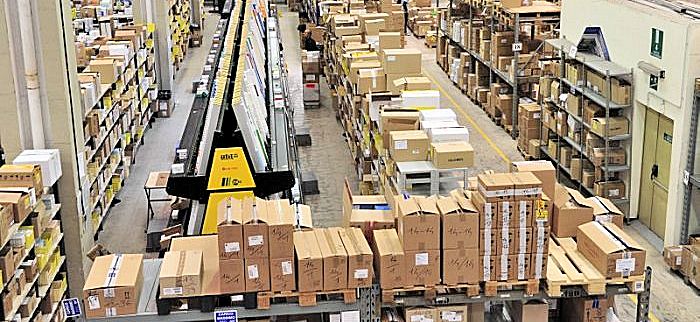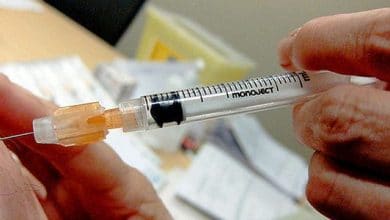
 The pharmacy buys the drugs directly or from other wholesalers and then sends the goods for export to countries where prices are much higher than those in force. It is the parallel trade phenomenon that has found ample space in the news in recent months also because the most direct consequence is the shortage of medicines and the relative disservices that affect citizens. Two bills on the subject will be presented today in Rome in the Chamber, by the first signatory, the Hon Paul Russo. One of the creators of the initiative, Maurizio Cini, president of Asfi, tells Farmacista33 a preview of the contents of the proposals.
The pharmacy buys the drugs directly or from other wholesalers and then sends the goods for export to countries where prices are much higher than those in force. It is the parallel trade phenomenon that has found ample space in the news in recent months also because the most direct consequence is the shortage of medicines and the relative disservices that affect citizens. Two bills on the subject will be presented today in Rome in the Chamber, by the first signatory, the Hon Paul Russo. One of the creators of the initiative, Maurizio Cini, president of Asfi, tells Farmacista33 a preview of the contents of the proposals.
Today, in the press room of the Chamber of Deputies, the Hon. Paolo Russo (first signatory of the law proposal n. C.3036 entitled "Changes to the legislative decree 24 April 2006, n. 219 [art. 100], on the separation between the wholesale drug distribution activities and the sales activities to the public") will present two bills, one of which aims to curb the phenomenon of parallel trade by pharmacies. As has been known for some time, the presence of several hundred pharmacies authorized to wholesale is attributed to the phenomenon of shortage of medicines in the distribution cycle.
It all started in August 2006 when, with the conversion into law of the so-called "Bersani decree", the incompatibility between the exercise of the pharmacy and the wholesale trade was removed. The aim was to overcome the problems that arose with the assignment of the management of municipal pharmacies to companies included in the intermediate distribution circuit. Probably not even Bersani himself imagined what is now being attempted to stem with the proposal of the Hon. Russian.
The text safeguards the freedom to exercise the wholesaler activity by pharmacy owners, individual members of companies that manage private pharmacies and the same companies that own pharmacies. What we want to prevent, however, is the mix between the dispensing of medicines to the public and the wholesale trade activity, aimed solely at exporting.
THE In practice, the bill tends to clearly separate the two activities that today overlap in the hundreds of pharmacies that have embarked on this opportunity, certainly negative for their professional image. The phenomenon sees the pharmacy buy directly or from other wholesalers, and then start exporting the goods to countries where prices are much higher than those in force in Italy. The industry, consequently, runs for cover by limiting supplies, both direct and to "real" wholesalers, with an evident disservice that affects citizens. A good share of responsibility was held by the regions, which are responsible for issuing the authorisations, due to the superficiality with which they handled the questions.
In practice, the bill tends to clearly separate the two activities that today overlap in the hundreds of pharmacies that have embarked on this opportunity, certainly negative for their professional image. The phenomenon sees the pharmacy buy directly or from other wholesalers, and then start exporting the goods to countries where prices are much higher than those in force in Italy. The industry, consequently, runs for cover by limiting supplies, both direct and to "real" wholesalers, with an evident disservice that affects citizens. A good share of responsibility was held by the regions, which are responsible for issuing the authorisations, due to the superficiality with which they handled the questions.
Also the intervention of the legislator in February 2014 (Legislative Decree 17/2014), which made only slight changes to decree 219/06, was not sufficient as there is still the possibility of superimposing intermediate trade on the exercise of the pharmacy.
The changes that the bill wants to introduce are certainly drastic but necessary:
1) Establishment of precise structural, organizational and technological requirements mandatory for all wholesale companies, through a specific ministerial decree.
2) Prohibition of carrying out the wholesale trade activity in the same premises in which the pharmacy activity is carried out or in premises communicating with them.
3) The responsible person (technical manager) of the wholesaler company cannot coincide with the owner of the pharmacy or with the shareholder of the company that owns the pharmacy.
4) The limitations on pharmacies are also extended to the establishments referred to in art. 5 of Legislative Decree July 4, 2006, n. 223 converted into law 4 August 2006, n. 248 (in practice the "parapharmacies" and the corners of the GDO).
5) If, following an inspection, to be carried out within thirty days following the issue of the authorisation, deficiencies are found in the equipment and organization referred to in the appropriate ministerial decree, the activity is immediately suspended until the irregularities are removed.
6) Since all the medicines referred to in table 2 FU are included among the mandatory supplies, it is specified that the wholesaler company must obtain authorization for the wholesale trade of narcotic substances. If the proposal becomes law, it will certainly clarify the wholesale distribution, without affecting business law but with the result of giving back to the pharmacy the transparency it needs, more than ever now.
Maurice Cini
Asfi President
Tuesday, 28 July 2015 – Pharmacist33
Related news: Bill C.3034 Delegation to the Government for the adoption of provisions for the traceability of drug packages by affixing a progressive identification code





